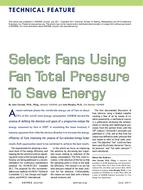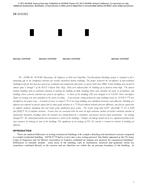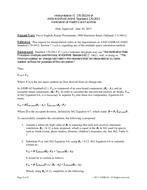A two-dimensional steady-state mathematical model is developed from physical principles to study heat transport of a run-around heat recovery system for air-to-air heat recovery in HVAC applications. A finite difference method is employed to solve the governing equations of the cross-flow flat-plate heat exchanger, giving the outlet air properties for any inlet operating conditions. The accuracy of the model is verified by comparisons with known theoretical solutions for individual cross-flow exchangers and run-around systems. The effectiveness of each exchanger and the overall run-around heat recovery system is shown to be dependent on the dimensionless area to the thermal capacity rate, N, and the thermal capacity ratio, Cr, of the heat exchanger. Designers are presented with a method to select the best operating flow rate of the coupling fluid and the dimensionless design parameters of the exchangers that will maximize the overall effectiveness and heat rate of the run-around system and allow for its part-load control.
Units: Dual
Citation: Symposium, ASHRAE Transactions, vol. 111, pt. 1, Orlando 2005
Product Details
- Published:
- 2005
- Number of Pages:
- 10
- File Size:
- 1 file , 2.1 MB
- Product Code(s):
- D-25600


